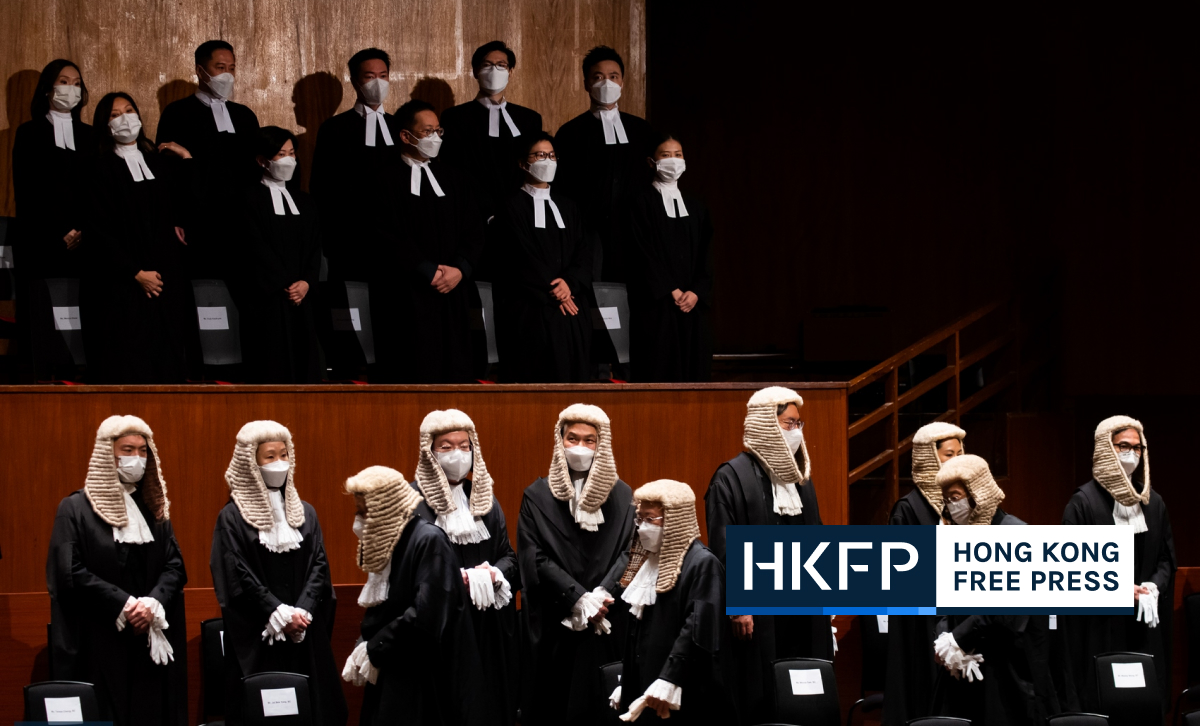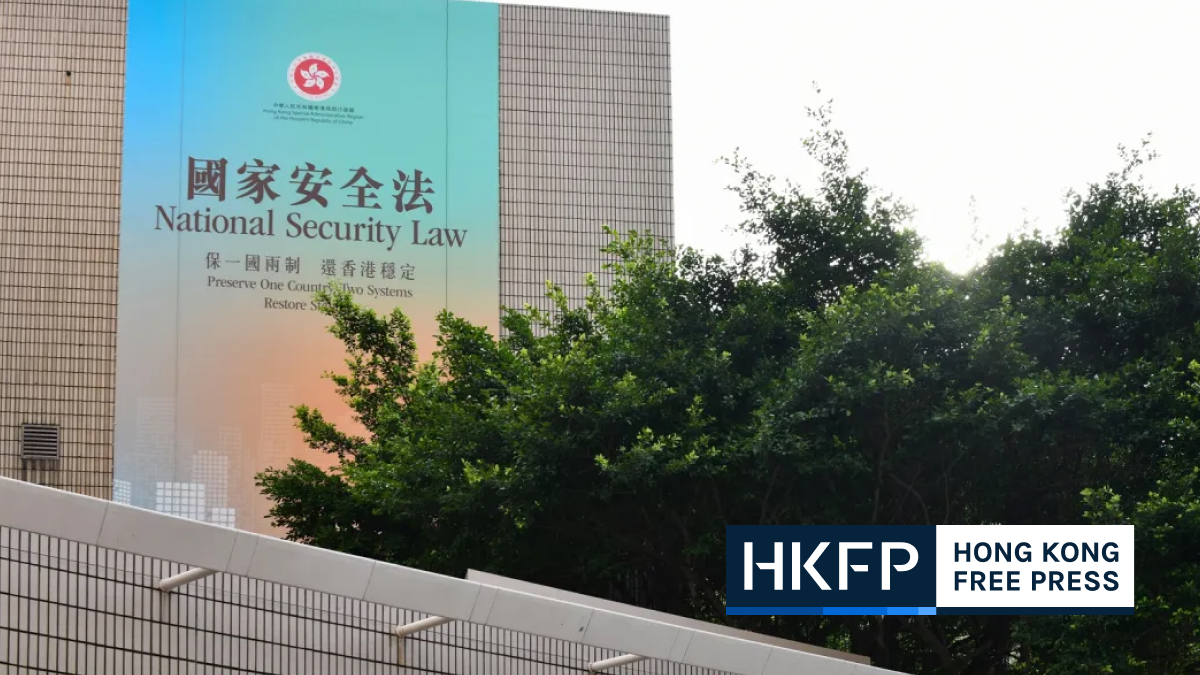An top ex-editor of the now-defunct digital newspaper Stand News has told a court that he considered moving the outlet’s data and operations abroad after Beijing implemented the national security law in 2020.

The sedition trial of Stand News‘ former chief editor Chung Pui-kuen, acting chief editor Patrick Lam, and the publication’s parent firm entered its 43rd day in front of District Judge Kwok Wai-kin on Monday. The three stand accused of conspiring to publish 17 “seditious” articles between July 2020 and December 2021.
During Monday’s hearing, lead prosecutor Laura Ng cited a profile of Chung published in Apple Daily days before the enactment of the security law, which quoted Chung as saying that he was thinking about a “Plan B” for Stand News.
Chung said he had been worried of the revival of Article 23 – Hong Kong’s own security law, abandoned amid mass protests in 2003 – since Stand News was established back in 2014.
“We have been thinking if it’s possible… that the server storing all of our content could be placed outside Hong Kong, and [we] seriously considered whether it was necessary to move the entire Stand News office out of Hong Kong,” Chung said.
But the editor said the company’s later decision to move its content from a local server to Google’s was motivated by the US tech giant’s better pricing and services, rather than security concerns.
Chung said it was because they found the offences targeted by the national security law did not concern where data was stored.
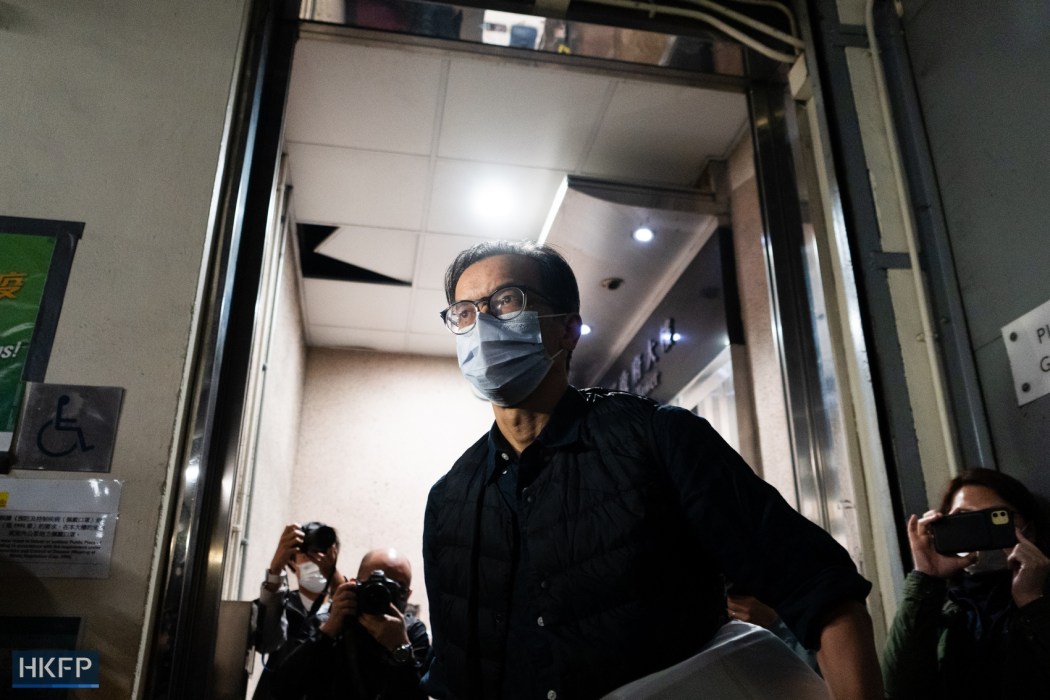
As for the idea of moving their entire operations abroad, the former chief editor said there were “many technical difficulties.”
“If your focus is covering local news, it would be very hard for you to not have an office in Hong Kong,” Chung added.
Young readers
In the Apple Daily profile, Chung was also asked to comment on an incident where a 13-year-old student reporter was escorted away from a protest scene by police at a Tsim Sha Tsui mall in 2020.
The prosecutor asked why Chung did not mention the age of the student when stating that “it is part of free speech that anyone can observe matters occurred in public.”
Ng asked: “He was young and unable to protect himself, and you think he should appear on the scene?”
In response, Chung said he gave his answer with reference to the broader context at the time, when there were many confrontations between police and the press. During the 2019 pro-democracy demonstrations and unrest, there were “many cases stemming from the police’s unreasonable arrangements for the media, or officers’ unrestrained behaviour,” he said.
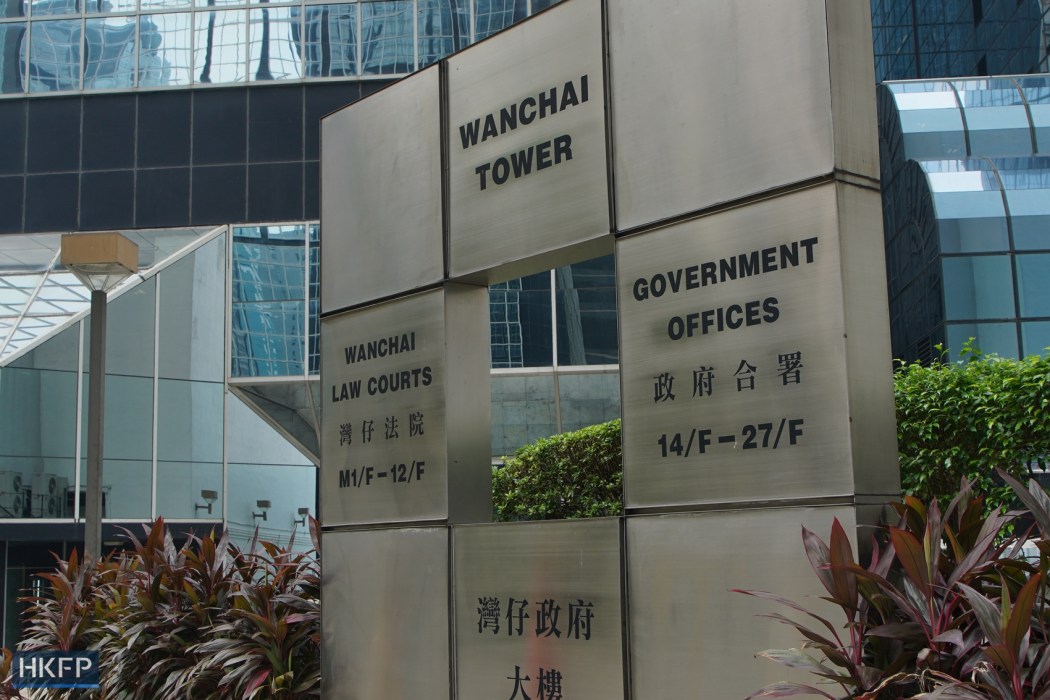
However, Chung said that – in retrospect – non-professional reporters might want to avoid covering the protests if they wished to protect their personal safety, “if you have no confidence in the police reactions or judgement.”
The prosecutor said that Chung previously remarked that he assumed their readers were capable of independent thinking. She asked if he found it acceptable for 13-year-olds to read the allegedy seditious articles in question.
In response, Chung said he thought there should not be an age limit for reading political commentaries: “If readers that are young have an interest, and are capable of understanding the articles… this could be the starting point for them to learn about [politics.]”
Chung added that he would still assume young readers would do their own research on political matters: “As long as the [free speech] environment is open and diverse, naturally, their curiosity over various issues will be satisfied.”
Second-in-command
The prosecutor also asked if Patrick Lam had been Chung’s deputy before Chung stepped down in October 2021. Chung answered that Lam was among his most trusted staff at Stand News. However, he did not agree with the government lawyer’s description that Lam had been his deputy in terms of editing.
Judge Kwok then clarified the prosecutor’s question and asked if Lam was the publication’s decision-maker in Chung’s absence.
In response, Chung said Lam could only make decisions over certain areas of reporting, which included investigative reports, court news, data journalism and the creation of interactive features.
Meanwhile, Lam would not deal with the editing of op-eds, which was Chung’s area, and the assignment editors at the outlet’s Hong Kong desk would coordinate among themselves to give the go-ahead for daily stories.

Chung added that other co-workers would only treat Lam as his deputy in his absence when it came to administrative work, or company affairs such as when the police showed up with a warrant.
Chung added that, after Beijing’s implementation of the national security law in June 2020, he and other senior staff at the outlet became more conscious of the risks they were facing.
As a result, Chung said the assignment editors would no longer make final decisions over articles they considered “sensitive” and would wait for him, then the chief editor, to make the call to publish.
‘I want them to stay safe’
Chung was also questioned as to whether, in July 2021, he already had Lam in mind as his replacement.
Chung said he was thinking about the possibility that he might be arrested or be prevented from carrying out his duties as the digital outlet’s chief editor, as a number of top-ranking staffers at defunct pro-democracy tabloid Apple Daily were arrested in mid-2021 – including his wife Chan Pui-man.
He said his initial thought was to find an outsider to fill his role in order to “bear the risk and immense stress” of the time.

Chung said he did not wish for Lam or other colleagues to take up his position. “To put it simply, I want them to stay safe.”
Chung added that he was the oldest staff member at Stand News, while others holding senior positions were under the age of 40. He said Lam was also around 30-years-old and had a daughter under two-years-old when he stepped up as the acting chief editor.
The prosecutor then questioned why outsiders would take up Chung’s role when they knew of the risks. To which Chung said: “that’s why I couldn’t find any.”
Legal privilege
Ng also asked why Chung and other senior Stand News staff collected legal opinions in the latter half 2020 after the implementation of the national security law when there had not been a lot of criticisms against the publication.
The editor revealed in his answer that the solicitor they invited did not charge them for his opinions.
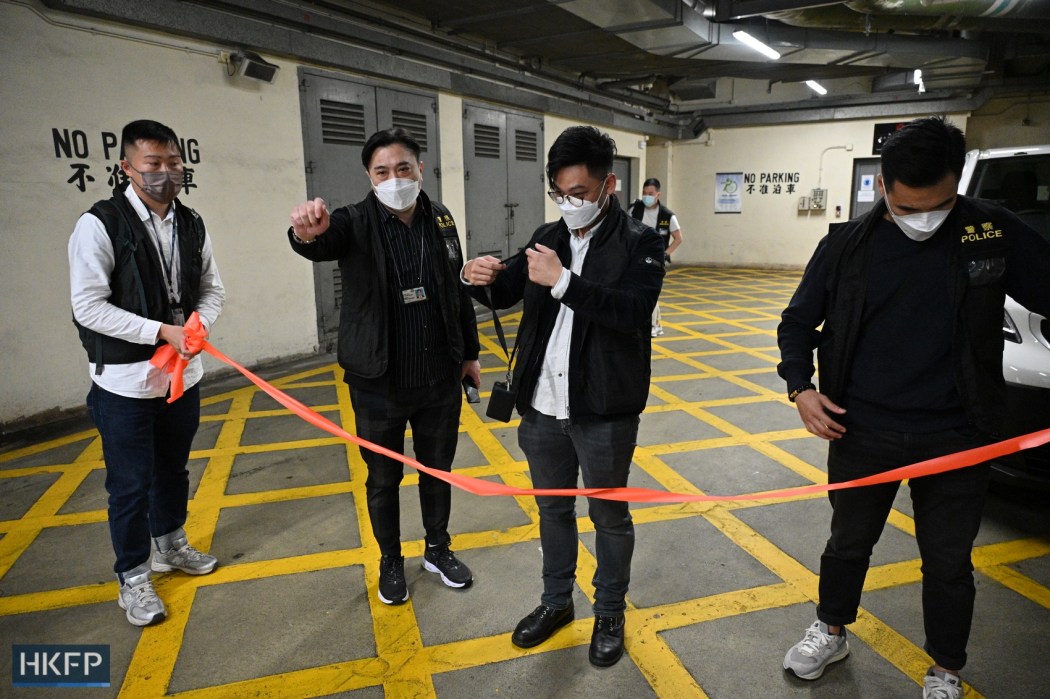
Ng then went on to ask if the lawyer they asked talked about the reasons behind the national security legislation
Chung’s barrister Audrey Eu rose and objected the prosecutor from asking further questions on matters subjecting to legal privilege.
Judge Kwok sided with the defence barrister and told Ng to come up with questions about Chung’s understanding of the security legislation instead of his conversation with a lawyer when the hearing resumes on Tuesday.
Prosecutor’s exit
After Ming Pao reported that a journalist was pushed away by police officers when trying to take pictures of lead prosecutor Laura Ng following Friday’s hearing, the police stepped up their presence near the court’s exit on Monday afternoon.
HKFP saw at least six officers stationed at the car park exit of the District Court after Monday’s hearing ended. Reporters were asked by the police to show their press passes as well as ID cards for “verifying the identity.”

Minutes before the prosecutor left the court, the police created a cordon line and told reporters to keep a distance as they were “moving evidence.”
Sedition is not covered by the Beijing-imposed national security law, which targets secession, subversion, collusion with foreign forces and terrorist acts and mandates up to life imprisonment. Those convicted under the sedition law – last amended in the 1970s when Hong Kong was still a British colony – face a maximum penalty of two years in prison.
Support HKFP | Policies & Ethics | Error/typo? | Contact Us | Newsletter | Transparency & Annual Report | Apps













